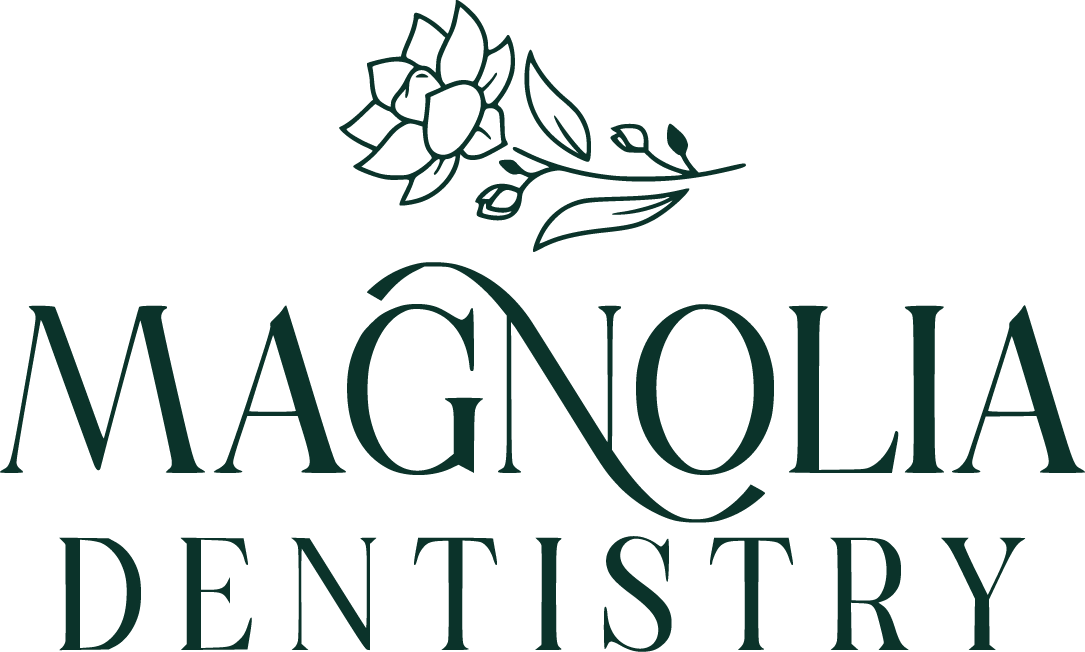Do dental cleanings hurt?
Generally, no, dental cleanings do not hurt. During a cleaning, the dentist or hygienist may use a special tool to scrape away any tartar buildup on your teeth and along your gum line. This process may cause a slight sensation due to the pressure that is being applied to your teeth, but it should not be uncomfortable or painful. If you experience pain during a cleaning, tell your dentist right away.
How often should I see the dentist?
The American Dental Association recommends that adults visit their dentist at least twice a year for regular check-ups and professional teeth cleanings. However, depending on your individual oral health needs and risk factors, your dentist may recommend more frequent visits. For instance, if you are at an increased risk of cavities or gum disease or have other oral health issues, you may need to visit the dentist more regularly for evaluations and cleanings.
Does insurance cover dental cleanings?
Most dental insurance plans will cover all or part of the cost of routine preventive care such as professional teeth cleanings and exams. Additionally, many plans also include coverage for additional treatments such as X-rays or fluoride treatments when necessary. Check with your insurance provider for specific coverage details related to your plan.
How do dental cleanings work?
During a professional dental cleaning, the dentist or hygienist will typically use specialized tools to gently remove plaque and tartar buildup from your teeth and along your gum line. They may also floss between each tooth before polishing them with special instruments that help leave them feeling smooth and looking shiny.
When should I take my child to the dentist for the first time?
It’s important to schedule an appointment with an experienced pediatric dentist as soon as possible after their first baby tooth erupts (usually between 6-12 months), so they can begin learning healthy habits early in life that will help ensure lifelong oral health! At this appointment, the pediatric dentist will review basic oral hygiene techniques with both you and your child while also providing preventive care such as examining their mouth for any potential problems like cavities or misalignment of their bite (occlusion).
Will my dental insurance cover the cost of an emergency dental appointment?
The cost of an emergency dental appointment will vary depending on the treatment required. We accept a variety of insurance plans, and our team will work with you to maximize your insurance benefits and minimize your out-of-pocket costs.
How can I prevent dental emergencies?
To help prevent dental emergencies, it’s important to practice good oral hygiene, including brushing and flossing regularly and visiting Magnolia Dentistry for regular check-ups and cleanings. Additionally, avoiding hard or crunchy foods, and wearing a mouthguard while playing sports can also help prevent dental injuries.
What should I do if I have a dental emergency after office hours?
If you have a dental emergency outside of office hours, please contact Magnolia Dentistry as soon as possible. We will provide you with instructions on how to manage your symptoms until a dentist can see you.
What happens during an emergency dental appointment?
During an emergency dental appointment, our team of experienced dental professionals will assess the problem and provide appropriate treatment. This may involve filling a cavity, repairing a broken tooth, or administering pain management medication.
How do I know if I have a dental emergency?
If you’re experiencing severe pain, swelling, or bleeding, or if you’ve lost a tooth, you may have a dental emergency. It’s important to contact Magnolia Dentistry immediately if you’re experiencing any of these symptoms.
What is considered a dental emergency?
A dental emergency is a painful, sudden, or unexpected dental problem that requires immediate attention. Examples include a broken or chipped tooth, severe tooth pain, a knocked-out tooth, a lost filling or crown, or a persistent jaw or gum injury.
What is included in a GLO Science whitening treatment at Magnolia Dentistry?
At Magnolia Dentistry, our GLO Science whitening treatment includes a comprehensive consultation, custom-fit trays, and professional-grade whitening gel.
Can anyone get GLO Science whitening treatment?
GLO Science whitening is safe for most people, but it is recommended to consult with a dentist to determine if it is the right option for you.
How long does a GLO Science whitening treatment last?
The results of a GLO Science whitening treatment can last for up to a year or more with proper care and maintenance.
What is the difference between in-office and take-home teeth whitening treatments?
In-office GLO Science whitening delivers fast and noticeable results in just one appointment. Take-home GLO Science whitening offers the convenience of a gradual and customized treatment plan to achieve your desired results.
Is teeth whitening safe for my teeth?
Yes, GLO Science whitening is a safe and effective way to brighten your smile. The formula is designed to be gentle and free of harmful chemicals.
How much does teeth whitening at the dentist cost?
The exact cost of teeth whitening at the dentist can vary depending on your unique needs and the treatment option that’s right for your smile. It is important to consult with your dentist to get an accurate estimate of the cost of your specific treatment as well as any additional fees that may be associated with it.
How should I care for my dental implants?
To ensure the long-term success of your dental implants, it is important to maintain good oral hygiene practices, such as brushing and flossing regularly and visiting your dentist regularly for check-ups and cleanings.
Does insurance cover dental implants?
Dental insurance coverage for dental implants varies, so it is important to check with your insurance provider to determine your specific coverage.
How much do dental implants cost?
The cost of dental implants varies depending on the number of implants needed, the type of restoration used, and other factors such as the location of the practice and the experience of the dentist.
What are dental implants?
Dental implants are artificial tooth roots that provide a permanent base for fixed or removable replacement teeth.
How are dental implants placed?
The dental implant placement process typically involves a surgical procedure to insert the implant into the jawbone, followed by a healing period of several months to allow for integration of the implant and the surrounding tissue. Once healed, the implant can be used to support a crown, bridge, or denture.
The entire process of getting dental implants typically takes several months, including the initial consultation, surgical placement of the implants, healing time, and placement of the final restoration.
Is the procedure for getting dental implants painful?
You may experience some discomfort during the surgical placement of the implants, but this can typically be managed with local anesthesia and/or conscious sedation. After the procedure, you may experience some soreness or swelling, but this should subside within a few days.
How should I care for my dental implants?
To ensure the long-term success of your dental implants, it is important to maintain good oral hygiene practices, such as brushing and flossing regularly and visiting your dentist regularly for check-ups and cleanings.
Does insurance cover dental implants?
Dental insurance coverage for dental implants varies, so it is important to check with your insurance provider to determine your specific coverage.
How much do dental implants cost?
The cost of dental implants varies depending on the number of implants needed, the type of restoration used, and other factors such as the location of the practice and the experience of the dentist.
What are dental implants?
Dental implants are artificial tooth roots that provide a permanent base for fixed or removable replacement teeth.
How are dental implants placed?
The dental implant placement process typically involves a surgical procedure to insert the implant into the jawbone, followed by a healing period of several months to allow for integration of the implant and the surrounding tissue. Once healed, the implant can be used to support a crown, bridge, or denture.
The entire process of getting dental implants typically takes several months, including the initial consultation, surgical placement of the implants, healing time, and placement of the final restoration.
Is the procedure for getting dental implants painful?
You may experience some discomfort during the surgical placement of the implants, but this can typically be managed with local anesthesia and/or conscious sedation. After the procedure, you may experience some soreness or swelling, but this should subside within a few days.
Do veneers hurt?
You may experience some discomfort during the surgical placement of the implants, but this can typically be managed with local anesthesia and/or conscious sedation. After the procedure, you may experience some soreness or swelling, but this should subside within a few days.
How long do veneers last?
With proper care, dental veneer longevity can be up to 10 years or more, depending on the material used in their construction and your oral hygiene habits. Porcelain is known to be stronger and more durable than other options available, so they typically last longer than composite resin when taken care of properly. Regular dentist appointments should also be scheduled as needed in order for your dentist to check the condition of your dental work, including any signs of wear or damage that need attention in order for your veneer’s longevity to be increased.
What are veneers made out of?
Veneers are most commonly made from either porcelain or ceramic materials. Porcelain veneers are strong and highly stain-resistant but have a higher price tag than composite resin veneers. Composite resin veneers are also an effective option for restoring teeth and have a slightly lower cost than porcelain while still providing good strength and durability.
Are veneers expensive?
The cost of veneers can vary depending on the type, quality, and the number of veneers needed. Compared to other cosmetic dental treatments, veneers are typically more expensive. It is important to speak with your dentist about payment options prior to getting veneers.

